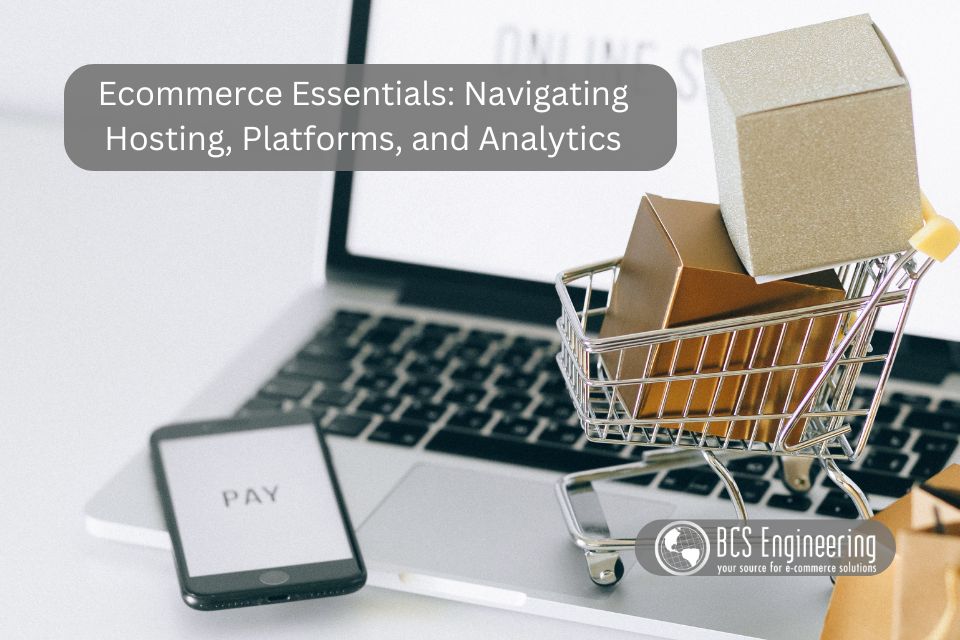What makes an online shop tick? Behind an eCommerce website is a combination of various components working together to create a seamless online shopping experience for customers. Where do you start? Today, let’s go over three key components that you need to begin your eCommerce journey.

The “back-end” of websites contain many pieces that come together to bring your online store front to life. Three major components that you need to build a growing website are a host, a platform, and an analytics tool.
Website Hosting
To start, your website needs a place where it can run and be accessed by online customers. That’s where choosing your website host comes in. Website hosting provides the infrastructure necessary for your website to be accessible on the internet. Think of it as renting space on a server. This server will house your website files and will be available for visitors when they type your domain name into their web browser. There are a variety of hosting solutions available. Performance, storage space, and security should all be considered whether you are shopping for a hosting provider or are hosting your site on a personal server.
Ecommerce Platform
After you have settled on a place for your website to live, you need to decide on an eCommerce platform. This could be something like Shopify, BigCommerce, Magento, or a custom-built solution. Your eCommerce platform provides the framework for managing products, orders, payments, and other essential functions. From designing your storefront to managing products, your platform will act as your base of operations. When choosing which eCommerce platform to use, consider your business needs, the scalability of the platform, customization options, ease of use, and platform support.
Analytics & Reporting
As your online shop grows, you will want to make adjustments overtime to improve your profits and customer experience. To monitor the performance of your eCommerce website, you need analytics tools that provide insights into traffic, sales, conversion rates, and other key metrics. This information helps you identify areas for improvement and make data-driven decisions. Google Analytics is just one example of an analytics platform that can be used to monitor and improve your site. When choosing a platform, you will need to consider the accuracy of the data, scalability, available features, and most importantly, data privacy and security measures.
Want to learn more?
Understanding the “back-end” of your website can help you make better business decisions. Listen to our latest eCommerce Made Easy Podcast where Carrie and Brandon Saunders go over common questions their clients have concerning the inner workings of eCommerce websites.
